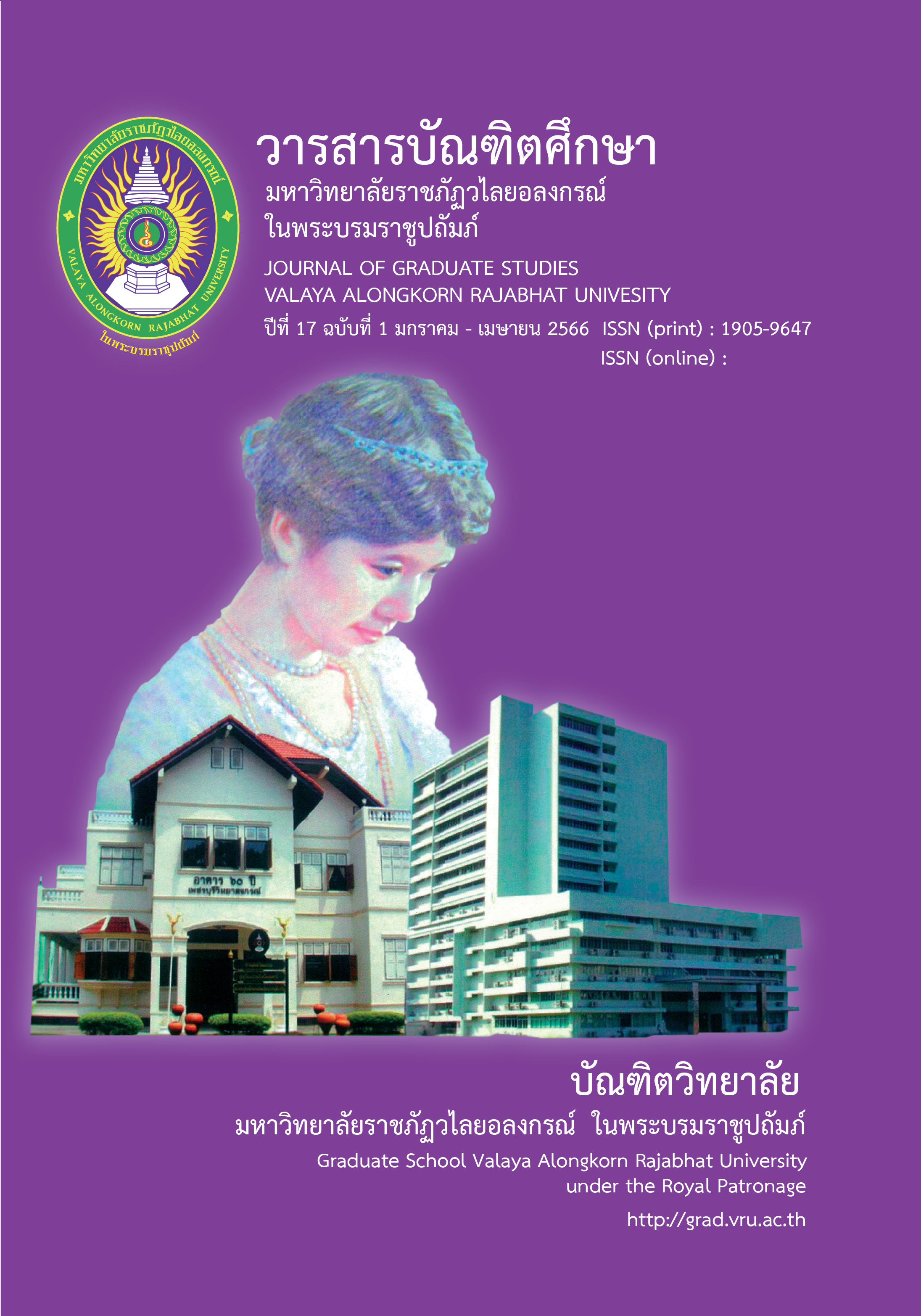THE FINNISH EDUCATION QUALITY MANAGEMENT
Main Article Content
Abstract
Finnish education has been reformed in the 1990s, a high-quality education system was driven by effective social education policies. The Finnish government's focus on all schools across the country has a unified curriculum. And there is an equality policy at the forefront of education reform, especially in the state welfare of which the Finnish population can receive free education at all levels. Finland has set standards for all-round education reform, namely the measurement of teaching. Education equality according to humanitarian and develop education as a tool to enhance people's lives. This is the application of the active learning to 21st century skills learning method by setting goals for educational outcomes as follows: critical analytical thinking, innovative creativity, collaboration and leadership, communication and media literacy, differential and cross-cultural thinking, utilization and technological literacy, technological skills career and learning, virtuous, and disciplined.
The success factors of Finland's educational reform are: equality and education of the people, equity and fairness, teacher’s values, relaxing environment, public service, and attributes of the Finns. The goals of the current education organization are not centered on scoring or numerical benchmarking issues as in the past. Rather, it prepares students for global citizen. Developing students to be citizens who are focused on fairness in society. An effective justice-oriented citizen requires an opportunity to analyze and thus contribute to society. Economy and politics to discern the injustice and the importance of seeking justice in society. Finnish education is not just a system of quality education for young people and people of society. But it also affects the development of the country for the better in all areas, such as the economy that is competitively at “A globally competitive economy”, low corruption level, “population well-being” and have a sustainable quality way of life.
Article Details

This work is licensed under a Creative Commons Attribution-NonCommercial-NoDerivatives 4.0 International License.
บทความทุกเรื่องได้รับการตรวจความถูกต้องทางวิชาการโดยผู้ทรงคุณวุฒิ ทรรศนะและข้อคิดเห็นในบทความ Journal of Global of Perspectives in Humanities and Social Sciences (J-GPHSS) มิใช่เป็นทรรศนะและความคิดของผู้จัดทำจึงมิใช่ความรับผิดชอบของบัณฑิตวิทยาลัย มหาวิทยาลัยราชภัฏวไลยอลงกรณ์ ในพระบรมราชูปถัมภ์ กองบรรณาธิการไม่สงวนสิทธิ์การคัดลอก แต่ให้อ้างอิงแหล่งที่มา
References
Areekul, C. (2016). bot wičhān nangsư̄ : patirūp kānsưksā hai samret rīan nǣo mai čhāk finlǣn [Finnish lessons 2.0 what can the world learn from educational change in Finland]. Journal of MCU Social Development. 1(3), 107-113.
Butktanyu, O. (2018). kānrīanrū dōi chai prākotkān pēn bān phư̄a kānsāng mummō̜ng bǣp ʻong rūam læ kān khaothưng lōk hǣng khwām čhing khō̜ng phū rīan [Phenomenon based learning for developing a learner’s holistic views and engaging in the real world]. Education Journal Chulalongkorn University.
(2), 348-365.
Chaiwon, T., & Nugultham, K. (2021). kānčhatkān rīanrū dōi chai prākottakān pen thān : kānrīanrū bǣp būranākān phư̄a songsœ̄m khwāmrū khō̜ng phū rīan nai lōk hǣng khwām čhing [Phenomenon-based learning: Integrated learning for enhancing learner’s knowledge in the real world]. Journal of Graduate Studies Valaya Alongkorn Rajabhat University. 15(2), 251-263.
Chanunan, S. (2017). rāingān kān khaorūam prachum wichākān nānā chāt dān sa tem sưksā [International symposium on STEM education: ISSUE] sō̜ngphansiphok Na mư̄ang lāti prathēt finlǣn [Report on participation in international symposium on STEM education (ISSE 2016) at Lahti in Finland]. Journal of Education Naresuan University. 19(1), 329-331.
Colagrossi, M. (2018). 10 Reasons why Finland’s education system is the best in the world. Big think. Retrieved from: https://www.weforum.org/agenda/2018/09/10-reasons-why-finlands- education-system-is-the-best-in-the-world.
Haag, G. (2022). prachum khwāmrūammư̄ thāng wichākān khō̜ng sūn wichākān winsœ̄ (prathēt Thai) rūam kap mahāwitthayālai tūnkū Na sathān ʻēk ʻak khō̜nrātchathūtfinlǣn pračham prathēt Thai ถ. witthayu Krung Thēp [Academic cooperation meeting. Attendees Kitta Hague, Advisor to the Finnish ambassador, and Ari Koski, University of Turku]. Interview. February 9, 2022.
Sahlberg, P. (2016). Finnish lessons 2.0: What can the world learn from educational change in Finland? (1) (Translated by Pidchamook, W.). Bangkok: Openworlds.
Samahito, C. (2019). kānčhat prasopkān kānrīanrū dōi chai prākottakān pen thān samrap dek pathommawai [Phenomenon-based learning experience provision in young children]. Silpakorn University Journal. 39(1), 113-129.
Sankhaburarak, S. (2020). kānphatthanā thaksa kānrīanrū tham phan kap chīwit čhing dūai kānsō̜n bǣp prākottakān pen thān rūpbǣp kānrīanrū čhāk finlǣn [Development of learning skills in relation to real-life by phenomenon-based teaching is the basis of the Finnish learning model]. Journal of Chinese Studies Kasetsart University. 13(1), 61-81.
Thanalertsomboon, P. (2020). Positive Learning: thō̜t botrīan hǣng khwām suk tonbǣp kānsưksā čhāk finlǣn [Positive learning. EEF and the 101 world. Thai education: Turning inequality into equality. Equitable education fund]. Retrieved from: https://www.the101.world/positive-learning-finland/
Vuorinen, K. (2019). oprom kānphatthanā kānsưksā nai mummō̜ng nakkān sưksā rūam ap sathān ʻēk ʻak khō̜nrāt thūtfinlǣn pračham prathēt Thai Na bānphak ēkʻakrātchathūtfinlǣn pračham prathēt Thai Krung Thēp [Training for educational development from the perspective of educators]. Lectured by Kaisa Vuorinen, an expert in positive psychology and positive studies.
Wallin, C. (2018). čhap krasǣ kānsưksā โลก [Trends. BBC News Brazil. pptvhd36.com]. Education Journal Chulalongkorn University. 46(4), 520-522.
Wiriya, P. (2018). kānnam sanœ̄ kitčhakam kān rīan kānsō̜n hētkān lōk nai yuk patčhuban samrap nakrīan matthayommasưksā tō̜n plāI [The efficiency study of instructional activities on world current events for senior high school students]. Department of Social Studies Teaching Silpakorn University. Bangkok.


